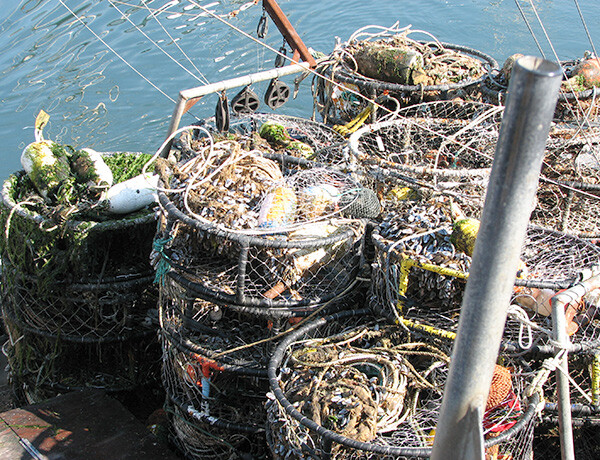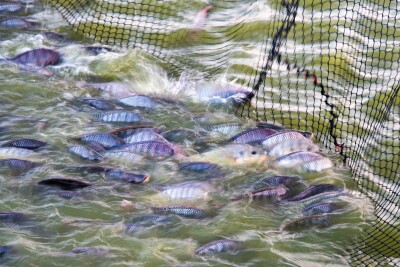Vessels contracted by the state of Oregon will soon begin a pilot project to recover lost Dungeness commercial crab pots, with the goal of reducing the danger of entanglements with whales and other marine life.
The spring in-season derelict crab pot recovery is a pilot project set up by the Oregon Dungeness Crab Commission in partnership with the state Department of Fish and Wildlife. Crabbers work to keep track of their expensive gear throughout the Dungeness crab season, but "some get moved and lost due to heavy storms, natural drifting debris, or vessel traffic and is then considered derelict gear," according to an advisory from state officials.
The recovery effort is focused on waters deeper than 40 fathoms (240 feet), where commercial crab pots are prohibited beginning May 1. The goal is to reduce the risks of gear entanglement with marine life protected under the Endangered Species Act.
"Although the prevalence of ESA-listed species entangled in Oregon crab pots is low, research shows endangered and threatened humpback whales are most abundant in offshore Oregon waters from spring through fall," according to state officials. "Oregon’s main entanglement risk reduction strategy is designed to reduce the overlap of protected species with crab pots, and the number of vertical lines in the water. Retrieving derelict pots at the end of the spring crabbing season is supporting this strategy aimed at both conserving Oregon’s protected species and maintaining a sustainable and thriving commercial Dungeness crab fishery."
The crab commission allocated $70,000 to contract with commercial crabbers to find and retrieve derelict pots along the Oregon coast. Crabbers applied and were accepted to participate in the program to receive a daily stipend for their work, $100 per pot retrieved, and reimbursement for fuel costs.
Inside 40 fathoms, the commercial crabbing season continues through Aug. 14 but with a 20 percent reduction in the number of pots used to avoid crowding and reduce vertical lines. All pots must be removed from the water by the end of the season.
Anyone can report derelict pots seen outside 40 fathoms to 541-267-5810 or email [email protected].







